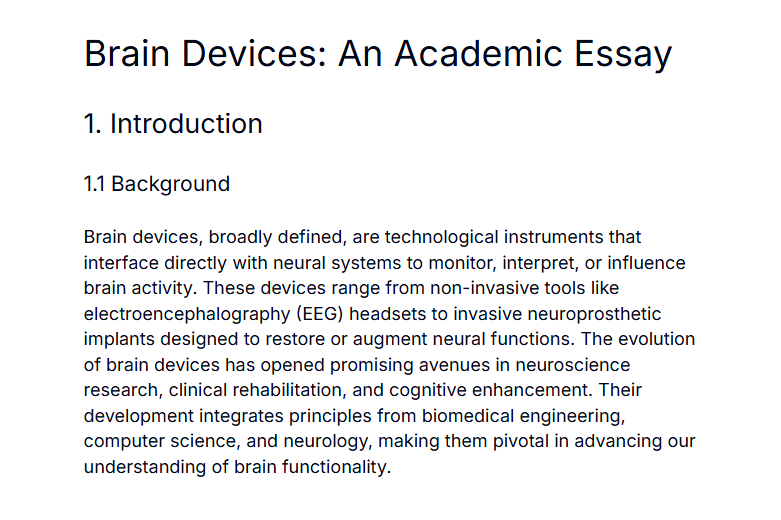A First Draft of the Future of AI in School
1. Introduction
1.1 Opening thoughts and compelling question about AI in schools
Artificial Intelligence (AI) is a new and exciting idea that many experts say will change our schools. Some people believe that smart computers could help teachers teach better and make learning more interesting. I wonder if someday our classrooms will have machines that help us with our homework and answer our questions quickly. These ideas make me think about the future: What if AI could be a friend that helps us learn in new ways? (White House Presidential Actions 2025; Lee et al. 2025)
2. Body Paragraph 1
2.1 Explanation of AI and its future role in school
AI, which stands for Artificial Intelligence, is like a brain for computers that helps them learn from information and make decisions in smart ways. According to the White House Presidential Actions (2025), there are plans to teach American students about AI from a young age so they can be ready for a future full of technology. Experts say that AI will not take away jobs from teachers but will instead help them by offering new ways to explain lessons and solve problems. This means that in the future, our schools might use AI to help with subjects like math, science, and reading.
3. Body Paragraph 2
3.1 Benefits of AI in learning and school activities
There are many benefits to using AI in schools. For example, AI can check our writing, help fix mistakes, and even create fun pictures to explain ideas. At the AI+Education Summit, experts discussed how AI tools can support teachers by speeding up lesson planning and personalizing learning for every student (Lee et al. 2025). With these smart tools, teachers could have more time to work closely with us, guiding our creativity and helping us understand tricky subjects. In short, AI can make learning easier, more fun, and more helpful for both students and teachers.
4. Body Paragraph 3
4.1 Possible challenges and worries about AI in schools
Even though AI is promising, there are some challenges and worries about using it too much in schools. Some adults are concerned that if we depend on computers too heavily, they might take over important parts of teaching and reduce the human touch in our classrooms. Experts such as Rob Reich and Erin Mote have pointed out problems like privacy issues and the need to use AI fairly and safely (Lee et al. 2025). There is a worry that relying on technology might make it harder for us to talk, share ideas, and learn the way we have done for a long time. That is why it is important for schools to carefully plan how AI is used so that it helps rather than harms our learning.
5. Conclusion
5.1 Summary of ideas and hopeful closing thoughts
In conclusion, AI has the potential to make our schools a much more exciting and helpful place. It can support teachers in lesson planning, help students understand difficult subjects, and even offer personalized learning journeys. While there are important challenges—like keeping our information safe and keeping the personal bond between teachers and students—there is hope that by working together and planning wisely, we can have a future where technology and care work hand in hand. Learning about AI now will prepare us for a bright future in which our classrooms use smart tools to help us all grow and succeed (White House Presidential Actions 2025; Lee et al. 2025).
References
“ADVANCING ARTIFICIAL INTELLIGENCE EDUCATION FOR AMERICAN YOUTH.” The White House Presidential Actions, 23 Apr. 2025, www.whitehouse.gov/presidential-actions/2025/04/advancing-artificial-intelligence-education-for-american-youth/.
Lee, Victor, Michael Frank, Emma Brunskill, Rob Reich, and Dan Schwartz. “The Future Is Already Here: AI and Education in 2025.” AI+Education Summit, 2025, www.acceleratelearning.stanford.edu/story/the-future-is-already-here-ai-and-education-in-2025/.
